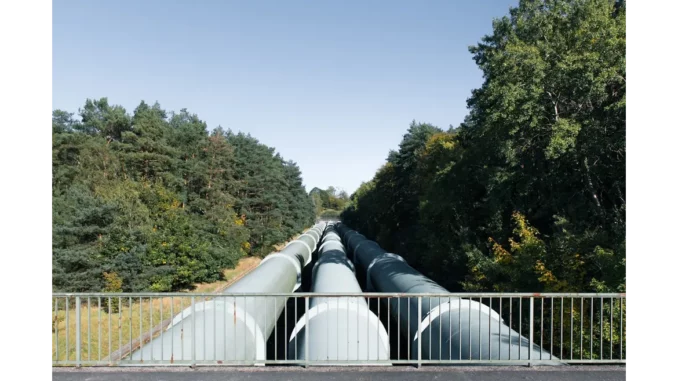
Summary
Pipeline Integrity Market Set to Surge by 2034 Amid Technological Advancements
The global pipeline integrity market, valued at USD 2.1 billion in 2023, is projected to reach USD 3.4 billion by 2034, driven by a compound annual growth rate (CAGR) of 4.7%. This growth is propelled by technological innovations and strategic investments responding to rising global energy demands. The United Kingdom, a key market player, is poised for a 5.6% CAGR, supported by its advanced technological infrastructure and stringent regulatory standards in the oil and gas sector.
Main Article
Technological Innovations Driving Market Growth
The pipeline integrity market is experiencing a significant transformation, largely due to the adoption of advanced technologies such as Artificial Intelligence (AI), the Internet of Things (IoT), and predictive analytics. These innovations are revolutionising pipeline integrity management by enabling more precise diagnostics, real-time monitoring, and predictive maintenance. Such capabilities are crucial in extending pipeline lifecycles and averting costly failures.
Smart technologies now provide predictive insights and real-time data on pipeline conditions, allowing operators to identify weaknesses before they escalate. “The integration of AI and IoT in pipeline management not only improves safety but also enhances operational efficiency,” notes Mark Williams, an industry analyst at EnergyTech Consultants. This proactive approach supports compliance with safety regulations and reduces maintenance expenses, which are essential for maintaining the market’s growth trajectory.
UK’s Strategic Position in the Market
The United Kingdom’s pipeline integrity market is forecasted to grow at a 5.6% CAGR through 2034, driven by the nation’s stringent regulatory frameworks and advanced technological prowess. With an extensive pipeline network, the UK government is heavily investing in infrastructure to improve pipeline safety and efficiency, thereby enhancing energy security. These efforts align with the country’s broader goals of achieving operational excellence and environmental sustainability.
The UK’s commitment to stringent safety standards and innovative solutions positions it as a leader in the global market. The integration of cutting-edge technologies is creating substantial opportunities for market players, as companies strive to meet the increasing demand for secure and reliable energy transport.
Regulatory Pressures and Environmental Concerns
The pipeline integrity market is also shaped by rising regulatory requirements and environmental safety concerns. Governments worldwide are imposing stricter safety standards, compelling companies to adopt advanced solutions. This regulatory pressure, combined with the need for operational excellence, is driving investments in state-of-the-art technologies.
Recent high-profile pipeline failures have underscored the urgency of securing infrastructure across industries. As a response, major market players are expanding their product portfolios and forming strategic partnerships to address the growing demand for comprehensive integrity solutions. This trend is leading to rapid innovation, as companies introduce enhanced sensors, monitoring devices, drone surveillance, and digital twin technologies to minimise downtime and optimise maintenance.
Detailed Analysis
Economic and Political Implications
The anticipated growth in the pipeline integrity market reflects broader economic and political trends, including the global push for energy security and environmental protection. As energy demands continue to rise, maintaining the integrity of pipeline networks becomes increasingly critical. The market’s expansion is indicative of heightened awareness and investment in infrastructure that supports sustainable energy transport.
Technological advancements are not only transforming how pipelines are managed but also how companies approach compliance and cost-efficiency. The integration of AI and IoT in pipeline management is a testament to the industry’s shift towards digitalisation and automation, which are expected to play a pivotal role in the market’s evolution.
Further Development
Future Prospects and Market Dynamics
As the pipeline integrity market evolves, stakeholders should anticipate continued technological advancements and regulatory shifts. Companies are likely to invest in further research and development to enhance the capabilities of existing solutions, ensuring they remain competitive in a rapidly changing landscape.
The focus on energy security and environmental sustainability is expected to drive further market growth, with new technologies emerging to address these critical issues. Industry players and investors should stay informed about these developments, as they will likely shape the future of pipeline integrity management and influence strategic decision-making.
Bloomberg will continue to monitor these trends, providing comprehensive analysis and updates on the pipeline integrity market and its implications for the global energy sector. Stay tuned for further insights and detailed coverage of this dynamic industry.

